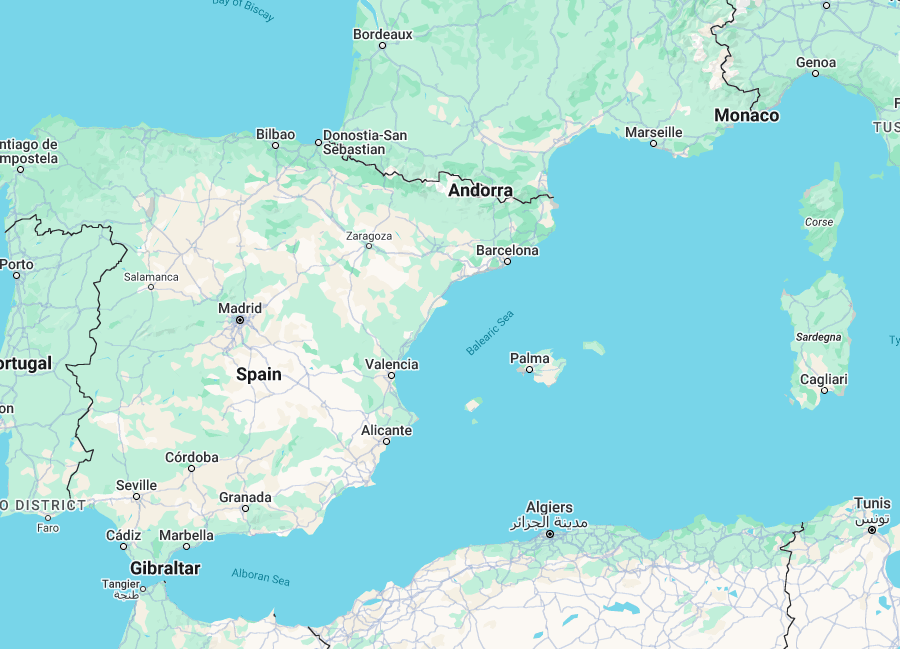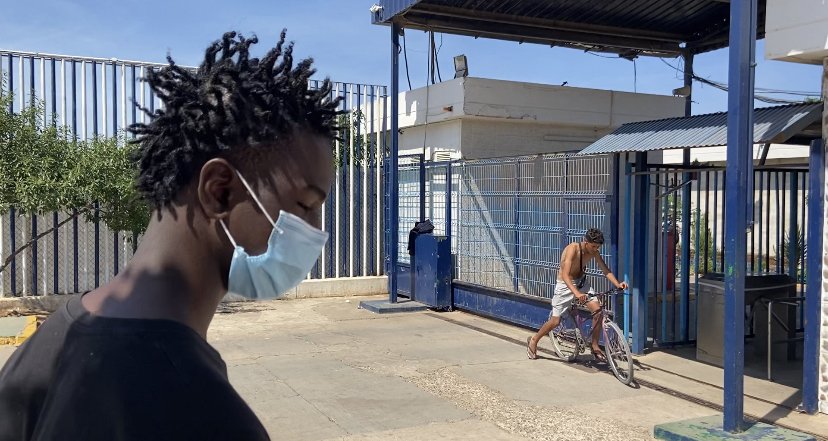In just four days this week, over 700 migrants were rescued near Spain’s Balearic Islands in the Mediterranean. Regional authorities said accommodating them is challenging and urged the federal government in Madrid to amend laws to allow more transfers to other regions in Spain.
Between Monday, November 4, and Thursday, November 7, the Spanish Civil Guard and maritime rescue service picked up 704 migrants near the Balearic Islands. Spanish authorities reported that most of the migrants are from North African countries.
In more detail, on Thursday (November 7), 41 migrants were rescued. On Wednesday (November 6), 418 were picked up off the islands of Formentera, Mallorca, Ibiza and Cabrera. On Tuesday (November 5), 218 were found by the Spanish authorities in the region and on Monday (November 4), 27 migrants were rescued.

Since August this year, 2,024 people have been rescued in the Balearic region. In 2023, 2,194 migrants were rescued throughout the whole year from this region. Up until now, more than 4,400 migrants have arrived on the Balearics after crossing the Mediterranean.
Read AlsoSpain: More than 110 migrants arrive on Mallorca and Formentera
Tents for new arrivals
The increase in the numbers of arrivals has prompted the regional authorities to refuse transfers of migrants from other regions of Spain, for instance from the Canary Islands, saying that there is a lack of reception space for any more arrivals.
On the island of Mallorca, the authorities say they are full to capacity and have began to put up tents to house new arrivals. In August, the Archbishop of Mallorca stepped in to provide a shelter to house unaccompanied minors arriving. In July, a whole floor of a retirement home was requisitioned to house around 40 migrants.
The President of the region Alfonso Rodriguez has called for more support from the federal government so that he can welcome the new arrivals. "The Spanish government must ask the opposition to reconsider the reception of unaccompanied minors, and look at making changes in the immigration law," he repeated this week.
Calls to modify the law
The modification he mentions, regards making transfers from Spanish territories off the mainland, like the Canaries, Ceuta and Melilla obligatory once those territories have reached 150 percent of their reception capacity. But the right-wing and extreme-right parties have been opposing the changes.
"We have to guarantee a certain level of solidarity to help autonomous regions when they become overwhelmed by the numbers of arrivals," said Rodriguez. Regional Secretary of State for Youth and Childhood on the Balearics, Rubén Pérez, said similar things in September. "We need to support these solidarity transfers, because we don’t want the search for adequate reception places to house unaccompanied minors to become a chronic problem," he explained.

The concerns voiced by the Balearic officials is something shared by the president of the Canary Islands region, Fernando Clavijo. On Tuesday, the leader of the Canary Islands, which has received the majority of migrant arrivals in Spain this year, once again called on federal politicians to vote for the reform of the immigration law. Once voted in, it would allow for the transfer of around 6,000 minors housed on the Canary Islands to other regions of Spain.
Read AlsoCanary Islands: Almost 2,000 rescued and 55 dead
Stalled negotiations
However, negotiations regarding the reform stalled over the last few weeks, mostly because of a disagreement between various political parties on the application of the law.
Currently, migrants heading towards Spain tend to head towards the Canary Islands. However, for a number of Algerians in search of a better life, the route towards the Balearics is becoming more popular. A few Moroccans, Syrians and sub-Saharan African migrants also choose this route, but for the most part, it is Algerian citizens, who tend to leave ports like Alger, Oran, Mostaganem or Tipaza and head towards the Balearics in fiberglass boats.
These boats are typically unsuitable for long crossings, and sinkings and incidents are regular. In the first five months of 2023 alone, 175 migrants from Algeria attempting to reach Spain via the Balearics or southern Spain lost their lives at sea, according to the Spanish NGO Caminando Fronteras (Walking Borders).
